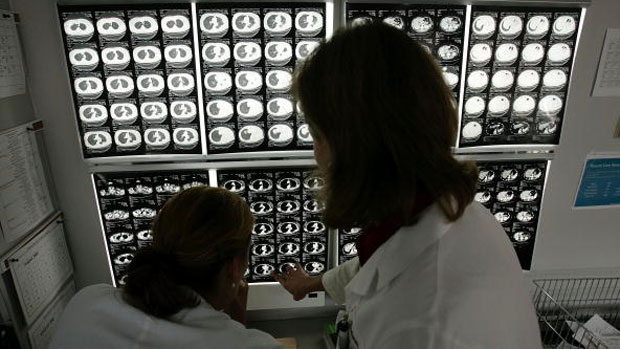Global cancer 'tidal wave': how can it be stopped?
Number of cancer cases across the world to reach 24 million by 2035, but half could be prevented

A free daily email with the biggest news stories of the day – and the best features from TheWeek.com
You are now subscribed
Your newsletter sign-up was successful
THE World Health Organisation has predicted a "tidal wave" of cancer over the next 20 years, with many people seemingly unaware that they can take steps to prevent the disease. The WHO has warned that more commitment to prevention is desperately needed to address the "alarming rise".
So, just how big is this 'tidal wave'?
The sharp increase is significant. The number of people diagnosed with cancer across the world in 2012 was 14 million. This is predicted to grow to 19 million by 2025, 22 million by 2030 and 24 million by 2035 – the equivalent of the whole population of Australia being diagnosed with cancer every year. At the same time, the estimated 8.2 million annual cancer deaths are expected to increase to 13 million in two decades, with the developing world expected to bear the brunt of the extra cases.
The Week
Escape your echo chamber. Get the facts behind the news, plus analysis from multiple perspectives.

Sign up for The Week's Free Newsletters
From our morning news briefing to a weekly Good News Newsletter, get the best of The Week delivered directly to your inbox.
From our morning news briefing to a weekly Good News Newsletter, get the best of The Week delivered directly to your inbox.
Why is the number increasing?
Dr Chris Wild, the director of the WHO's International Agency for Research on Cancer, has put the rise down to population growth and the ageing of populations. "If we look at the cost of treatment of cancers, it is spiralling out of control, even for the high-income countries. Prevention is absolutely critical and it's been somewhat neglected," Wild told the BBC. Out of the 24 million cases of cancer predicted in 2035, WHO says half of these could be prevented.
What are the major sources of preventable cancer?
Smoking, alcohol and obesity are key factors, as well as radiation from the sun and from medical scans. Infections such as the human papilloma virus (HPV), an unhealthy diet and air pollution have also been named. Nevertheless, a survey of more than 2,000 people in the UK by the World Cancer Research Fund found that nearly half did not know that an unhealthy diet increases the risk of developing cancer, while a third of people thought cancer was mainly due to family history. The charity said no more than 10 per cent of cancers were down to inherited genes.
A free daily email with the biggest news stories of the day – and the best features from TheWeek.com
What should be done?
Amanda McLean, general manager for the World Cancer Research Fund, says: "In the UK, about a third of the most common cancers could be prevented through being a healthy weight, eating a healthy diet and being regularly physically active." The charity advises a diet filled with vegetables, fruit, and wholegrains; cutting down on alcohol and red meat; and ditching processed meat completely. Others suggest that legislation is key. Writing in The Guardian, Bernard Stewart, editor of the World Cancer Report, champions the plain cigarette package legislation introduced in his native Australia and suggests more laws could be introduced to target the availability of sugar-sweetened soft drinks.